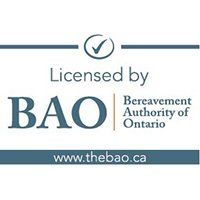A Death has Occurred
You've been fortunate if you were present during the final moments of a loved one's life. We believe that while nothing prepares you for being present at the death of a loved one, bearing witness to the death of a loved one can bring new insights into your own capacity for selfless love and caring, help you to renew or intensify bonds with other family members, find a new respect for siblings, or assist in the healing of old emotional wounds. It is a priceless gift — but it's one you may not truly value until much later.
So, Who Do You Call First When a Loved One Dies?
Whether you were sitting right next to the bed or was unfortunate to get a call at 2 a.m. with news of the death of someone you loved, chances are your first feelings were of "being numb" and confused. But, if you're responsible for making the funeral arrangements or executing the will, you really can't give into the shock or grief - you've got to move forward and take care of things.
When a death occurs, what you do first depends on the circumstances of the death. For example, in a hospital or similar care facility, the staff will usually take care of some arrangements, such as contacting the funeral home and, if necessary, arranging an autopsy.
However, you – or a designated family member or friend – will need to notify others. We've found it will make it easier on you if just a few phone calls are made to other relatives or friends, where you ask each of them to make a phone call or two to specific people. That way, the burden of spreading the news isn't all on you.
And if you are facing this situation alone, ask a friend or neighbour to keep you company while you make these calls. That way, it'll be easier to cope with the first hours after the death.
One of the first calls you should make is to a licenced Funeral Director. Naturally, we'd like you to call us. Whether you choose us or select a different funeral home, you should know that the funeral director will help you:
- Transport the body
- Obtain a death certificate
- Select a casket, urn and/or grave marker
- Arrange the funeral, memorial and/or burial service
- Prepare and publish the obituary
- Help notify the deceased's employer, attorney, insurance company and banks
- Offer grief support
- Direct you to other resources

Don’t Forget to Call the Employer
Call the Life Insurance Company
If your loved one had a life insurance policy, locate the related paperwork. Call the agent or the company and ask how to file a claim. Usually the beneficiary (or the beneficiary's guardian, if a minor) must complete the claim forms and related paperwork.
You'll need to submit a certified copy of the death certificate
and a claimant's statement to establish proof of claim. Remember to ask about payment options. You may have a choice between receiving a lump sum, and the having the insurance company place the money in an interest-bearing account from which you can write cheques.
For more information on what's involved with funeral planning click here,
or contact us.
Are You the Responsible Family Member?
We’ve seen it happen time and again. The person making the initial call to our firm turns out not to be the one with the legal responsibilities of making decisions related to the care of a loved one.
While they may feel that they should
be the one to make these choices, the law doesn’t recognize them as such — and so their voice can become effectively silenced.
If the deceased has not expressed their wishes through a written document such as a Durable Power of Attorney for Health Care, or a Last Will and Testament, where the deceased has designated an agent to fulfill their wishes, then the chain of command, formally called the “order of precedence”, is commonly as follows:
- Legal Spouse/Partner
- Surviving Adult Child/Children
- Surviving Parent
- Surviving Adult Sibling
- Ex-Spouse
- Parent of Minor Child
The person designated as the responsible party, whoever they may be, needs to be present to make decisions, and sign documents. If you are unclear as to who is the responsible person in planning a funeral for your loved one, call us.
The Critical Importance of Designating a Representative
If your loved one has yet to specify who they wish to be in control of their cremation service planning, and they are clear-headed enough to do so, now is the perfect time to take care of that task.
This is especially important if they think their relatives will not respect their cremation plans, or if they are on bad terms with them; do not know where they are, or do not have any living relatives.
And, you might mention that appointing a specific person to arrange their cremation service who is not
a family member, but is deeply trusted, is a good way to ensure that their final wishes are carried out.
They can designate their choice by completing an Advance Health Care Directive, or the easy-to-read 5 Wishes
guide from Aging with Dignity. Should you have questions about doing so, call us, or speak with your family attorney.
License No. TS-1479
Price List

